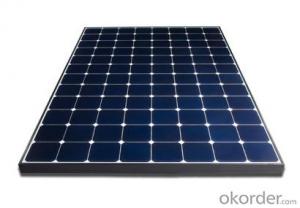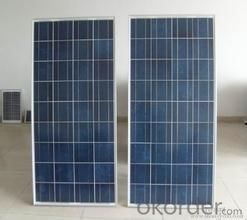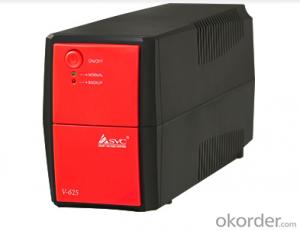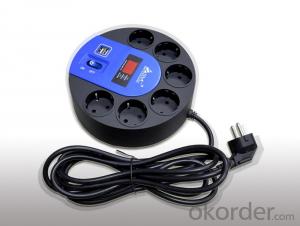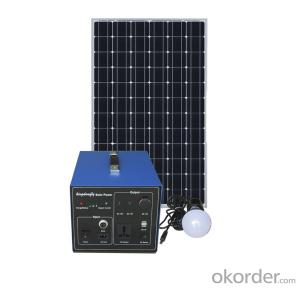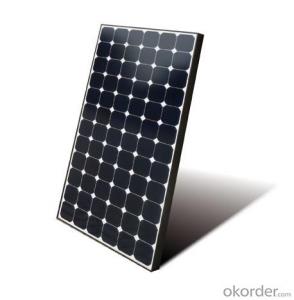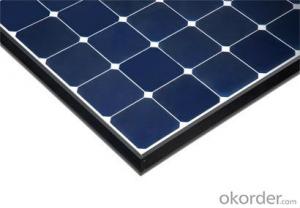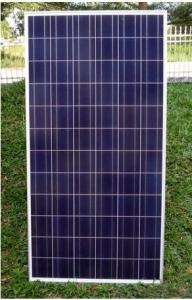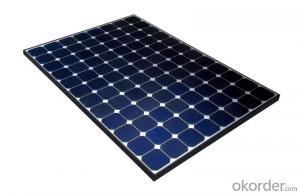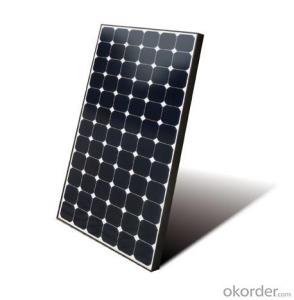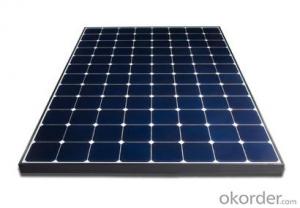Affordable Solar Energy Systems:CNBM On-Grid System 10kW with Certificate UL, TUV, CE
- Loading Port:
- Shanghai
- Payment Terms:
- TT OR LC
- Min Order Qty:
- 100 watt
- Supply Capability:
- 1000 watt/month
OKorder Service Pledge
OKorder Financial Service
You Might Also Like
Specification
CNBM On Grid System 10KW with Certificate UL TUV CE
Product description
They range from small residential and commercial rooftop systems to large utility-scale solar power stations. Unlike stand-alone power systems, a grid-connected system rarely includes an integrated battery solution, as they are still very expensive. When conditions are right, the grid-connected PV system supplies the excess power, beyond consumption by the connected load, to the utility grid.
Connection of the photovoltaic power system can be done only through an interconnection agreement between the consumer and the utility company. The agreement details the various safety standards to be followed during the connection.[4]
Bypass diodes may be incorporated or used externally, in case of partial module shading, to maximize the output of module sections still illuminated.Systems such as Net Metering and Feed-in Tariff which are offered by some system operators, can offset a customers electricity usage costs. In some locations though, grid technologies cannot cope with distributed generation feeding into the grid, so the export of surplus electricity is not possible and that surplus is earthed.
Grid-connected PV systems are comparatively easier to install as they do not require a battery system.[1][6]
Grid interconnection of photovoltaic (PV) power generation systems has the advantage of effective utilization of generated power because there are no storage losses involved.[7]
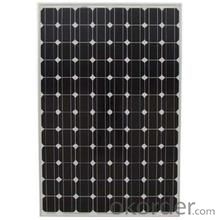
Application
Industrial
Commercial
Residential
Feature
Residential, grid-connected rooftop systems which have a capacity more than 10 kilowatts can meet the load of most consumers.[2] They can feed excess power to the grid where it is consumed by other users. The feedback is done through a meter to monitor power transferred. Photovoltaic wattage may be less than average consumption, in which case the consumer will continue to purchase grid energy, but a lesser amount than previously. If photovoltaic wattage substantially exceeds average consumption, the energy produced by the panels will be much in excess of the demand. In this case, the excess power can yield revenue by selling it to the grid. Depending on their agreement with their local grid energy company, the consumer only needs to pay the cost of electricity consumed less the value of electricity generated. This will be a negative number if more electricity is generated than consumed.[3] Additionally, in some cases, cash incentives are paid from the grid operator to the consumer.
Packaging
With carton and box
- Q: Can solar energy systems be installed on historic buildings?
- Yes, solar energy systems can be installed on historic buildings. However, it is important to consider the sensitivity of the building's preservation and design. Careful planning and collaboration with historic preservation experts are required to ensure that the installation does not compromise the architectural integrity of the historic structure.
- Q: What is the impact of dust and dirt on the performance of solar panels?
- Dust and dirt have a significant impact on the performance of solar panels. When dust settles on the surface of solar panels, it forms a layer that obstructs sunlight from reaching the photovoltaic cells. This reduces the amount of light absorbed by the panels, resulting in a decrease in the overall energy output. The accumulation of dust over time can lead to a substantial reduction in efficiency, ultimately affecting the overall performance of the solar panel system. Furthermore, dirt and dust can also cause shading on the panels, creating hotspots. These hotspots can cause localized heating, leading to potential damage to the panel's electronics and reducing their lifespan. The elevated temperatures can also cause a drop in efficiency and further decrease the energy production capability of the solar panels. Regular cleaning and maintenance of solar panels is crucial to mitigate the impact of dust and dirt. Cleaning can be performed manually through periodic washing, or automated cleaning systems can be installed to ensure panels are kept free from debris. By maintaining clean panels, the amount of sunlight reaching the photovoltaic cells is maximized, optimizing energy production and ensuring the longevity of the solar panel system.
- Q: How do solar energy systems impact energy reliability?
- Solar energy systems can have a positive impact on energy reliability by diversifying the energy mix and reducing dependence on traditional fossil fuel-based power sources. By harnessing the abundant and renewable energy from the sun, solar systems can contribute to a more stable and consistent energy supply, especially when combined with energy storage technologies. This not only reduces the risk of power outages and disruptions but also enhances the overall resilience and reliability of the energy grid.
- Q: What is the impact of dust storms on solar panels?
- Dust storms can have a negative impact on solar panels as they can reduce the panels' efficiency by blocking sunlight and reducing the amount of energy they can generate. The accumulation of dust on the panels can also lead to overheating, which can further decrease their performance and potentially damage the panels if not cleaned regularly.
- Q: Can solar energy systems be used in powering theme parks or water parks?
- Yes, solar energy systems can definitely be used to power theme parks or water parks. Solar energy is a clean and renewable source of power that can provide a sustainable and cost-effective solution for meeting the energy needs of these establishments. Theme parks and water parks require a significant amount of electricity to operate attractions, lighting, water pumps, and other facilities. Installing solar panels can help reduce their reliance on conventional energy sources and decrease their carbon footprint. The large open spaces available in theme parks and water parks are ideal for installing solar panels, which can be mounted on rooftops, carports, or ground-mounted arrays. Solar energy systems can generate electricity by converting sunlight into usable energy through photovoltaic (PV) panels. These panels can be integrated into the infrastructure of the park discreetly and efficiently. The energy generated during the day can be used immediately to power rides, lighting, and other equipment, and any excess energy can be stored in batteries for use during periods of low sunlight or at night. Furthermore, solar energy systems can provide a reliable source of power and reduce the vulnerability of theme parks and water parks to power outages or disruptions in the grid. This is particularly important in areas prone to extreme weather events. By incorporating backup battery storage systems, solar energy can provide a constant and uninterrupted power supply even during emergencies. In addition to the environmental and reliability benefits, solar energy systems can also provide long-term cost savings for theme parks and water parks. While the initial installation cost might be higher, the operational costs are significantly reduced as the sun provides free and abundant energy. Over time, the savings on electricity bills can offset the initial investment, resulting in substantial cost savings for the park's owners. Overall, solar energy systems have the potential to revolutionize the power supply of theme parks and water parks. By harnessing the sun's energy, these establishments can not only reduce their environmental impact but also achieve long-term cost savings and enhanced energy reliability.
- Q: Can solar energy systems be used for powering space exploration missions?
- Yes, solar energy systems can be used for powering space exploration missions. Solar energy is a clean and renewable source of power that is abundant in space. It is already being utilized for various space missions, such as the International Space Station (ISS), Mars rovers, and satellites. Solar panels, also known as photovoltaic (PV) cells, convert sunlight into electricity. They are lightweight, compact, and can be easily integrated into the design of spacecraft. Solar panels are especially useful for missions that are close to the Sun or in space where there is ample sunlight, as they can provide a steady and reliable source of power. The ISS, for example, relies heavily on solar power. It is equipped with large solar arrays that capture sunlight and generate electricity to meet the energy demands of the crew and the various systems onboard. The Mars rovers, such as Curiosity and Perseverance, also utilize solar panels to power their operations on the red planet. Solar energy systems offer several advantages for space exploration missions. Firstly, they eliminate the need for bulky and limited fuel sources, such as batteries or radioactive materials, reducing the overall weight and cost of the mission. Secondly, solar energy systems are virtually maintenance-free, providing a long-lasting and reliable source of power. Additionally, solar power is environmentally friendly, producing no emissions or pollution during operation. However, there are some limitations to using solar energy in space exploration. For missions that venture far from the Sun or operate in areas with limited sunlight, alternative power sources like nuclear energy or fuel cells may be necessary. Moreover, solar panels are susceptible to damage from micrometeoroids, radiation, and other space debris, requiring protective measures and redundancy systems. In conclusion, solar energy systems have proven to be a viable and efficient option for powering space exploration missions. Their ability to convert sunlight into electricity, combined with their lightweight and compact design, make them an ideal choice for providing a sustainable and reliable source of power in space.
- Q: Can solar energy systems be used in powering mining operations?
- Yes, solar energy systems can be used to power mining operations. Solar panels can be installed near mining sites to capture sunlight and convert it into electricity, which can then be used to power various equipment and machinery required for mining operations. This helps reduce dependence on fossil fuels, lowers operational costs, and minimizes environmental impact associated with traditional power sources.
- Q: What is the role of solar thermal collectors in solar energy systems?
- Solar thermal collectors play a crucial role in solar energy systems as they are responsible for capturing and converting sunlight into thermal energy. These collectors use the sun's radiation to heat a fluid, typically water or air, which can then be used for various applications such as heating buildings, producing hot water, or even generating electricity through steam turbines. By harnessing the sun's heat, solar thermal collectors enable a sustainable and renewable source of energy that can significantly reduce reliance on fossil fuels and mitigate climate change.
- Q: Can solar energy systems be used in powering recreational facilities like gyms or spas?
- Yes, solar energy systems can definitely be used to power recreational facilities like gyms or spas. In fact, many gyms and spas are already utilizing solar energy as a sustainable and cost-effective solution for their power needs. Solar panels can be installed on the roof or in the vicinity of the facility to capture sunlight and convert it into electricity. This clean and renewable energy source can then be used to power various equipment such as lighting, air conditioning, heating, and other electrical systems within the gym or spa. By incorporating solar energy systems, recreational facilities can significantly reduce their reliance on traditional energy sources, such as fossil fuels. This not only helps to reduce carbon emissions and combat climate change but also provides long-term financial benefits. Solar power can result in substantial energy savings over time, as gyms and spas can generate their own electricity and potentially even sell excess power back to the grid. Moreover, solar energy systems can be seamlessly integrated into the design of recreational facilities. The sleek and modern look of solar panels can enhance the overall aesthetic appeal of the facility, while also demonstrating its commitment to environmental sustainability. This can attract environmentally conscious customers who value businesses that prioritize renewable energy and contribute to a greener future. In summary, solar energy systems are a viable and increasingly popular option for powering recreational facilities like gyms or spas. By harnessing the power of the sun, these facilities can reduce their carbon footprint, save on energy costs, and attract environmentally conscious customers.
- Q: How does the size of a solar energy system affect its installation cost?
- The size of a solar energy system directly affects its installation cost. Larger solar energy systems typically require more solar panels, inverters, and other equipment, which in turn increases the overall cost of installation. Additionally, larger systems often require more complex mounting systems and electrical wiring, which can further contribute to the installation cost. However, the cost per watt of a solar energy system generally decreases as the system size increases. This is because larger systems benefit from economies of scale, allowing for bulk purchasing of materials and reduced labor costs. As a result, the cost per watt decreases, making larger systems more cost-effective in terms of installation. Furthermore, the size of the solar energy system also impacts the amount of energy it can generate. Larger systems have a higher capacity and can produce more electricity, making them suitable for fulfilling higher energy demands. This can be advantageous for homeowners or businesses with larger energy consumption, as they can offset a greater portion of their electricity bills. It is important to note that the specific installation cost of a solar energy system depends on various factors such as location, equipment quality, labor costs, and available incentives. Therefore, while size is a significant factor, it is not the sole determinant of the installation cost.
Send your message to us
Affordable Solar Energy Systems:CNBM On-Grid System 10kW with Certificate UL, TUV, CE
- Loading Port:
- Shanghai
- Payment Terms:
- TT OR LC
- Min Order Qty:
- 100 watt
- Supply Capability:
- 1000 watt/month
OKorder Service Pledge
OKorder Financial Service
Similar products
Hot products
Hot Searches
Related keywords
